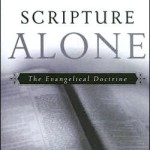 Does Inerrancy Matter? The Legacy of James Montgomery Boice
Does Inerrancy Matter? The Legacy of James Montgomery Boice
by Dr. Derek Thomas (original source here)
“[I]f part of the Bible is true and part is not, who is to tell us what the true parts are? There are only two answers to that question. Either we must make the decision ourselves, in which case the truth becomes subjective. The thing that is true becomes merely what appeals to me. Or else, it is the scholar who tells us what we can believe and what we cannot believe… God has not left us either to our own whims or to the whims of scholars. He has given us a reliable book that we can read and understand ourselves.”
These words, arguing the logic of an inerrant Scripture, were part of a sermon preached on May 23, 1993 by James Montgomery Boice (see, Whatever Happened to the Gospel of Grace [Wheaton, IL: Crossway, 2009], 69). The sermon was preached on the twenty-fifth anniversary of his pastorate at Tenth Presbyterian Church in Philadelphia. Boice began by drawing attention to the fact that the doctrine of Scripture had been the most important thing that Tenth Presbyterian Church had stood for in its (then) one hundred sixty-four year existence.
At the close of 1977, ten years into his pastorate at Tenth, Dr. Boice helped in the foundation of the International Council on Biblical Inerrancy, and subsequently chaired it. A few years later, Boice published, Standing on the Rock: Upholding Biblical Authority in a Secular Age (Grand Rapids, MI: Kregel, 1984) in which he answered the question, why does inerrancy matter? He noted that most of his contemporaries seemed more preoccupied with having a “personal relationship” with Jesus than addressing the doctrine of Scripture. But who is this Jesus with whom we are to have a personal relationship if not the Jesus accurately (inerrantly) portrayed in Scripture? We live a relativistic age, Boice argued, where there is no such thing as truth, only “what’s true for me.” “When people operate on that basis, they usually think they have found freedom because, in not being tied to absolutes, they have freedom to do anything they wish. They are not tied to God or to a God-given morality. They do not have to acknowledge any authority. But the consequence of this kind of freedom is that they are cast adrift on the sea of meaningless existence.” (Standing on the Rock [1994 edition], 17).
Absolute truth
Inerrancy is important, Boice argued, in a postmodern culture, to provide the individual with a basis for absolute authority in doctrine and morals. Without absolutism, we are adrift in a sea of relativism and subjectivism. Without a trustworthy Scripture, there is only a mere potentiality of meaning actualized differently in differing circumstances. We are trapped in the present, our own historical circumstances, and cannot understand the past or have any certainty of the future. Truth lies in community and the voice of the Spirit – all subjective entities – wisps that appear for a moment promising much and delivering little.
Ultimately, as Boice argued all too well, if there is no ultimate meaning, nothing I say makes any sense, including the words “there are no absolutes”! What Boice saw was that without inerrancy, the relevance of Christianity diminishes. Why should anyone commit their lives to the institution of the church if there is no certainty that what she stands for is true. Relativism as to truth leads to relativism as to behavior and commitment. The moral drift of the last thirty years with its accompanying.
Authoritative Preaching
What is preaching? It is either Truth delivered through personality (as Philips Brooks suggested), or it is the opinion of men (and women). The steps from the original autographs to text, translation and meaning is a complex one, involving a commitment to providence as well as a rigorous hermeneutic (and hence, the Council of Biblical Inerrancy also issued a statement, “Formal Rules of Biblical Interpretation”). “It is only when ministers of the gospel hold to this high view of Scripture that they can preach with authority and effectively call sinful men and women to full faith in Christ.” (Standing on the Rock, 24). Continue reading


